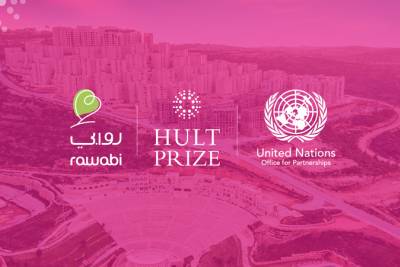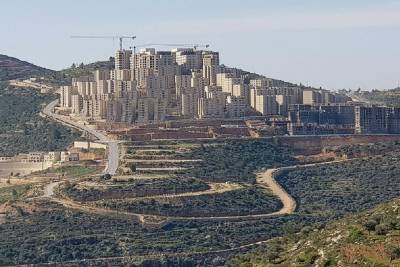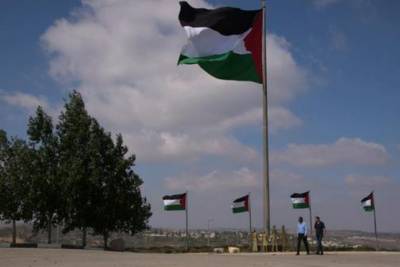Plans revealed for $1bn city in Palestine
Construction Week Online - Nick Ames - Details of the first planned city to be built in Palestine were revealed at Cityscape Global 2014, held in Dubai.
Rawabi is a project by developer Bayti and architect firm Ziayda and is set to cost around $1bn. It includes residential, retail and leisure facilities including an amphitheatre for live performances, two mosques, a hospital, cinema and a church.
Masterplanning was undertaken by Aecom along with Birzeit and An-Najah National universities and the technical team of Bayti.
The project has been approved by the Palestinian Authority and the Palestinian Higher Planning Council.
Mutaz Khdeir, of Bayti, said: “This is the first time a planned city project has been undertaken in Palestine. Some of it has already been built while other parts are still under construction. In total 4,000 Palestinian workers are building the development.
“I feel it is important as I believe 100% that if we cannot overcome the political issues surrounding developing Palestine in this project, then we will never develop anything.”
Rawabi is the largest private sector project in Palestinian history and was initiated at the Palestinian Investment Conference , which took place in Bethlehem in 2008.
The word Rawabi is Arabic for “The Hills” and the city is located on the West Bank, nine kilometers to the north of Ramallah.
The slogan for the development calls the city: “A place to live, work and grow”.
The development is funded by the Qatari company LDR and Palestinian multimillionaire Bashar al-Masri, who has been working on similar projects in Morocco, Egypt and Jordan.
Khdeir said: “He felt it was time he did something for the people of his home country. The developers have been involved in projects across the world and thought it was time to develop Palestine.
“The city will include 6,000 residential units and be home to 40,000 people. It is being built in phases, the first and second neighbourhoods are completed along with around one quarter of the commercial centre.”
The Palestinian Authority is responsible for providing off-site infrastructure, while Bayti is tasked with the design and development of the city. The Rawabi economic growth strategy has the aim of creating 3,000 to 5,000 new jobs in what it calls a “knowledge economy” including IT, healthcare and education.
Sustainability is also a major factor in the project with thousands of trees being planted, including an olive sapling put into the earth by former UK Prime Minister Tony Blair.
One of the first visitors to the construction site was US senator John Kerry, the current Secretary of State, while UN Secretary General Ban Ki-moon has also viewed the project.
To view original article, Click Here.



